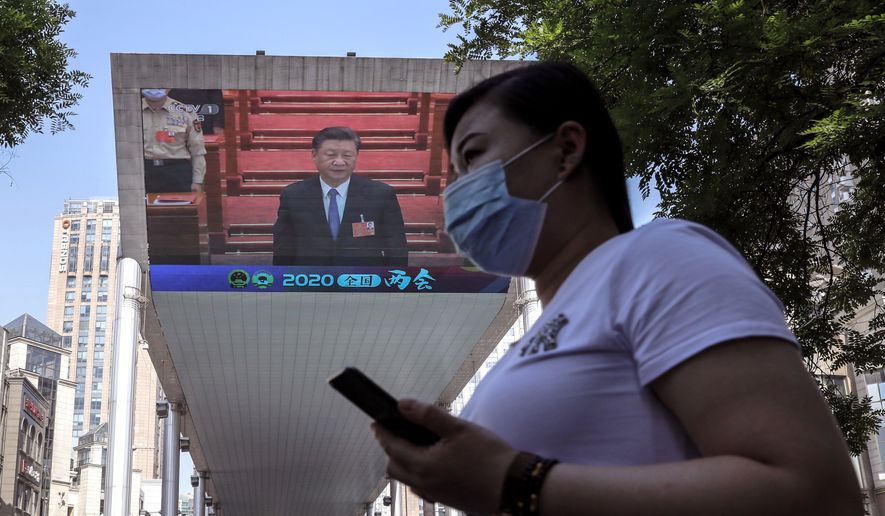China’s parliament on Thursday approved a national security law on Hong Kong that has sparked fear that the legislation could infringe on the city’s autonomy and freedoms.
The decision comes one day after the Trump administration declared that China has effectively stripped Hong Kong of its promised democratic freedoms and the city no longer deserves a raft of U.S. trade and investment privileges, fueling rising U.S.-Chinese tensions and throwing into question the island territory’s status as a global financial powerhouse.
Beijing has said the strict “national security law” on Hong Kong would allow Chinese intelligence and security forces to be based inside the district for the first time, and seeks to address terrorism, secession and foreign interference in the city.
The proposal of the law sparked widespread protests in the city as thousands of Hong Kong residents took to the streets, and hundreds have since been arrested.
China’s National People’s Congress moved to push the legislation forward by a 2,878-1 vote, while six abstained.
“From now on, Hong Kong is nothing but just another mainland Chinese city,” pro-democracy lawmaker Claudia Mo said following the vote.
SEE ALSO: Mike Pompeo accuses China of stripping Hong Kong’s freedom and autonomy
It remains unclear when the law will be enforced, but The Associated Press reported that it could be enacted at a future gathering of the ceremonial legislature in June or August.
China’s hand-picked leader for Hong Kong, Carrie Lam, welcomed the move, citing the difficulty her government has passing any national security legislation.
“The law will not affect the rights and freedoms enjoyed by Hong Kong residents,” she said in a statement, adding that the new legislation will “sanction an extremely small minority of criminals who threaten national security.”
She claimed the ruling will “not affect the legitimate rights and freedoms enjoyed by Hong Kong residents.”
Pro-Beijing lawmakers said the law will not impact the autonomy granted to Hong Kong under a 1997 treaty between Britain and China that bound Beijing’s communist rulers to respect Hong Kong’s autonomy as a special administrative region and to leave its liberal economy and government for 50 years under the formulation “one country, two systems.”
“We truly believe that this decision made by the National People’s Congress would not harm the rights and freedom that Hong Kong people enjoy,” Chinese lawmaker Martin Liao said after the vote. “It could solve the issue of violence and riot and let citizens return to a peaceful and stable life.”
Japan quickly condemned the move, along with democracies around the world.
Chief Cabinet Secretary Yoshihide Suga said the decision concerns Japan “amid strong concerns expressed by the international community and the people of Hong Kong.”
Secretary of State Mike Pompeo on Wednesday hit back against the anticipated ruling and said the U.S. “stands with the people of Hong Kong as they struggle against [China’s] increasing denial of the autonomy that they were promised.”
Mr. Pompeo said in a statement that the Trump administration is determined to counter China’s push to crush democracy in the territory.
The decision is expected to spark deeper tensions between Washington and Beijing, as the U.S. continues to weigh sanctions to impose. But some fear Hong Kong’s own people may bear the brunt of the U.S. decision, along with more than 1,300 U.S. firms with offices in the “special administrative region.”
Chinese leaders, meanwhile, have been bracing for a U.S. response and made clear they would not tolerate “interference” in what they consider China’s internal affairs.
The “era of the U.S. intimidating China is over,” the state-controlled, nationalist Global Times wrote in an editorial Wednesday.
“The China-U.S. ’battle’ over Hong Kong is on,” the editorial said. “The U.S. is free to play any cards in its hand. Hong Kong is under China’s sovereignty, and whatever act Washington passes is just wastepaper.”
• Guy Taylor contributed to this story, which is based in part on wire service reports.
• Lauren Toms can be reached at lmeier@washingtontimes.com.




Please read our comment policy before commenting.